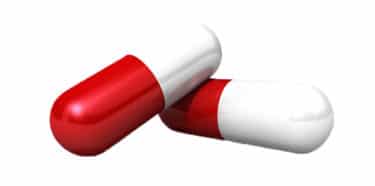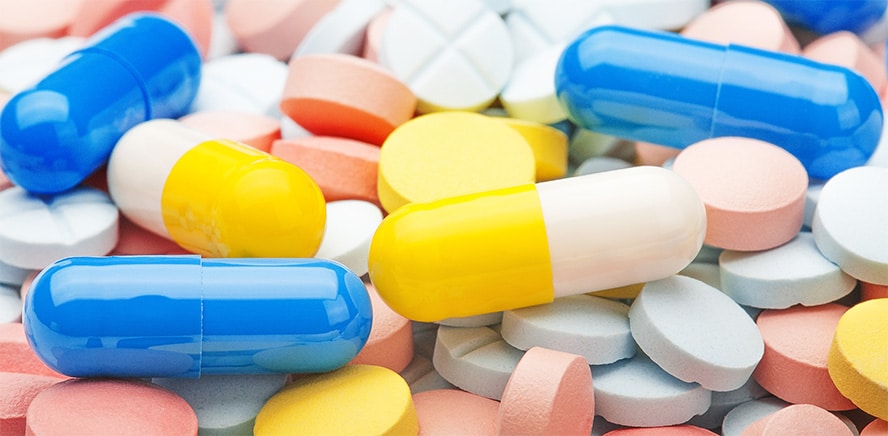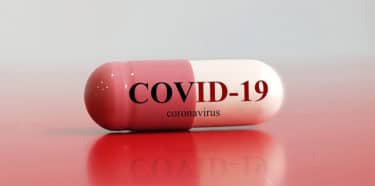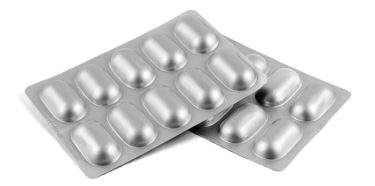Antidepressant is the generic name of medicines widely used in the treatment of many diseases, especially depression. They were first used in 1950s. There are are many types of antidepressants. Contrary to common belief, antidepressants don’t cause addiction and are very effective in the treatment of depression. The claim that ‘antidepressants do not take effect’ has been one of the most controversial topics in the medical world for a long time. However, this claim has now fallen off from the agenda thanks to many scientific studies conducted in recent years. Today, antidepressants are used in many diseases such as depression, anxiety, panic attacks and chronic pain. They are separated into groups regarding their mechanism of action.
Table of Contents
What is an antidepressant?
Antidepressants are medicines used to treat depression and other mental disorders. Depression is a mental illness that has many emotional, mental and physical symptoms. It may cause serious disabilities in individuals. Antidepressants were developed for depression and anxiety treatment. They are separated into several groups regarding their mechanism of action.
The first samples of antidepressants were not selective, as they were not developed for the treatment of depression. Treatment options have increased with new selective medicines. The World Health Organization states that depression is one of the most important health problems.
The most prominent feature of depression is depressed mood and a significant decrease in pleasure. The person is sad, pessimistic, and hopeless. S/he loses interest in her/his environment. Feelings such as distress become prominent. These feelings interfere with one’s daily life and may last for a long time. Depression should be taken seriously and an appropriate treatment must be administered.

How do antidepressants work?
The mechanism of action of antidepressants
How antidepressants exactly take effect is not known. They are considered to increase the level of chemicals called neurotransmitters produced in our brain. Known neurotransmitters, serotonin and noradrenaline, affect the mood and mental state of the person. In particular, recently developed antidepressants help treat depression by preventing their reuptake into the cells.
Neurotransmitters may also affect pain signals sent by nerves. This may explain how some antidepressants relieve long-term pain. While antidepressants can treat symptoms of depression, they don’t always treat their causes. Therefore, they should be used combined with different treatment options in more severe depression or other mental health disorders.
What are antidepressants used for?
Antidepressants are used not only in the treatment of depression, but also in the treatment of many psychiatric disorders. Some of these diseases are:
- Anxiety
- Bipolar disorder
- Obsessive compulsive disorder
- Post-traumatic stress disorder
- Panic attack
- Eating disorders
- Chronic pain
How are antidepressants used?
Antidepressants are usually taken in tablet form. When prescribed, the treatment will start at the lowest possible dose considered necessary to improve your symptoms. They need to be taken at least for 1-2 weeks without missing a dose for it to be effective.
It is important to continue using it even if you experience mild side effects early on, as the side effects of these drugs disappear quickly. However, if you take the medicine for more than 4 weeks and you do not see any improvement in your condition, be sure to consult your doctor. Your doctor may adjust the dose and/or change the medicine.
An antidepressant must be taken at “appropriate dose” and for an “appropriate period” to claim that a medicine used in a depressed patient is ineffective. The appropriate dose is the dose range for a drug in which “antidepressant effect” is expected within a maximum of two weeks. The appropriate period, on the other hand, is at least 4-6 weeks.
Effects of antidepressant on depression treatment
Antidepressants do not act as fast as a painkiller. Due to their mechanism of action, they will not take effect as soon as you start taking. However, their effectiveness in depression treatment has been suggested many times in scientific studies for years, and their effect has been proven clinically.
Studies show that antidepressants can be effective in patients with moderate to severe depression. Scientific studies also proved the effectiveness of antidepressants compared to a placebo in people with depression. However, in cases of mild depression, antidepressants are recommended only if the patient does not respond to other treatment options.
Things to know before taking antidepressants
- You may only use antidepressants with the prescription of a psychiatry specialist. You cannot take antidepressants with the advice of your friends, neighbors, or family friends.
- Always follow the recommendations of your doctor while take a medicine.
- Antidepressants can have various side effects. Learn about side effects by reading the side effects section in the package insert that comes with your medicine. Side effects are not observed in everyone. However, if you notice any unexpected side effects, consult your doctor and pharmacist.
- Antidepressants have various side effects. They can affect your cognitive functions by causing drowsiness, dizziness, and sleepiness. These effects will gradually decrease with continued use of your medicine. However, consult your doctor and pharmacists whether the medicine affects your abilities driving and using machinery, or while working in tasks that require attention.
- Antidepressants do not take effect quickly as their mechanism of action is processed via the brain. This should be considered and the medicine should not be discontinued for this reason. Treatment should not be discontinued on personal decision. The dose should gradually be decreased under the guidance of your physician.
- As with many medicines, antidepressants are excreted from our body after being metabolized by the liver. Liver enzymes help excrete drugs from our body. Concurrent use of other medicines or consuming foods that affect liver enzymes may cause different side effects. If you have to take another medicine with your antidepressants, consult your doctor and pharmacist for a safe treatment.
Types of antidepressants
Antidepressants are divided into different groups according to their mechanism of action. Your doctor will decide which group to use according to the severity and type of the disease.
Selective serotonin reuptake inhibitors (SSRIs)
SSRIs are the most commonly prescribed antidepressants. They are generally preferred over other antidepressants as they cause fewer side effects. Antidepressant with the active ingredient fluoxetine is one of the most known antidepressants. Other active ingredients in this group are citalopram, paroxetine, and sertraline.
Serotonin and norepinephrine reuptake inhibitors (SNRIs)
SNRIs are similar to SSRIs. They are designed to be a more effective than SSRIs. However, it cannot be suggested that SNRIs are more effective in treating depression. While some people respond better to SSRIs, others respond better to SNRIs. The active ingredients in the SNRI group are duloxetine and venlafaxine.
Noradrenergic and specific serotonergic antidepressants (NaSSAs)
NaSSAs may be effective for some people who cannot take SSRIs. The side effects of NaSSAs are similar to those of SSRIs, but they are considered to cause fewer sexual problems. However, they may also cause more drowsiness during the very early phases of intake.
Tricyclic antidepressants (TCAs)
TCAs are an older group of antidepressants. They are no longer commonly used in the primary care of depression. They are used in people with severe depression who do not respond to other treatments. Some active ingredients in this group are amitriptyline, clomipramine, imipramine, lofepramine, and nortriptyline. Some tricyclic antidepressants such as amitriptyline may be used for chronic nerve pain.
Monoamine oxidase inhibitors (MAOIs)
MAO inhibitors are older group of antidepressants and they are less commonly used today. The active ingredients in this group are tranylcypromine, phenelzine and isocarboxazid.
Other Antidepressants
Molecules used in other psychiatric disorders, yet approved by the health authorities for the treatment of depression are included in this group. Aripiprazole and bupropion are among the frequently used active ingredients.
Antidepressant side effects
- Sleepiness and insomnia
- Dizziness, drowsiness
- Dry mouth
- Urinary retention
- Nausea, constipation
- Headache
- Sexual problems
- Weight gain, weight loss
- Muscle tremor
Antidepressant side effects usually occur within the first 2 weeks and gradually decrease. Common effects are nausea and anxiety; however, this may vary depending on the type of medicine taken. If the side effects are too irritating or if you have suicidal ideation, you should immediately inform your doctor.
Especially in children and adolescents, the use of antidepressants may have negative effects such as excessive mood elevation and behavioral change. This may evoke mania or hypomania. Antidepressants do not cause bipolar disorder, but they can unmask a condition that has not yet revealed itself.
Antidepressants, like all chemicals in nature, are harmful depending on the dose. As Paracelsus expressed, “The dose makes the poison”. Therefore, antidepressants will not be harmful as long as you take them at dose and for the period prescribed by your doctor. The potential benefits of a drug in treatment process are expected to outweigh risks of it.
It is an important criterion that your antidepressant treats your depression, along with its side effects. Side effects can be ignored for the general state of health. However, if you are unable to adapt to your treatment, you may ask your doctor to change your treatment.
Antidepressants sexual side effects
Lack of sexual drive and inability to have orgasm are common but less spoken side effects of antidepressants. Half of the individuals taking SSRIs complain about sexual problems. A solution to overcome such side effects may be to change the antidepressant.
In addition, a drug may be used for erectile dysfunction (difficulty maintaining an erection). However, never discontinue the antidepressant treatment without consulting your doctor. Discontinuation of the medicine abruptly may cause serious problems.
Do antidepressants cause weight gain?
Some reliable medical studies have shown that long-term use of antidepressants may increase the risk of diseases such as Type II diabetes and hypertension. They may also cause weight gain. Some studies also suggest that SSRIs may cause weight gain more commonly. However, lifestyle of an individual and malnutrition during depression also lead to weight gain. Healthy eating and exercise help you get through depression more easily.
Do antidepressants cause suicide?
In rare cases, some people experience ideation of self-harm and suicide after taking antidepressants. Young people under the age of 25 are particularly at risk regarding this ideation. If you have any thoughts of harming or killing yourself at any time while taking antidepressants, contact your doctor or apply to a hospital immediately.
It may be helpful to tell a close friend or a family member that you start taking antidepressants. They will be there to help you if your symptoms get worse or your behavior changes fundamentally.
Natural depression treatment
Depression is a serious illness that cannot be explained as temporary bad mood. If we would go to a doctor when an organ in our body doesn’t function properly, and use the prescribed medicines, it should be the same with the treatment of depression. Although the root cause of depression is not fully known, it is thought to be caused by changes in the levels of various chemicals called “neurotransmitters” produced by our brain.
Antidepressants ensure that these chemicals are released at normal levels. Natural treatments that have such a clear effect on the brain have not scientifically been presented yet. However, there are some natural treatments that can be administered under the control of a doctor.
Cognitive behavioral therapy (CBT)
Cognitive behavioral therapy (CBT) is a method of speech therapy in the treatment of depression which is being used increasingly. Most specialists recommend treating people with moderate to severe depression using a combination of CBT and antidepressants. However, if you have difficulty in taking antidepressants or don’t want to take them, you can also consider CBT method alone.
CBT helps you understand your thoughts, your behavior, and how they affect you. It helps you realize that incidents in your past shaped you. CBT mostly focuses on how you can change your current thoughts, feelings, and behavior. It also teaches you how to overcome negative thoughts.
St. John’s Wort (Hypericum perforatum)
St. John’s Wort can be used as a natural remedy for depression. However, due to some possible risks, it should be taken only after consulting a doctor. Combining it with certain antidepressants may cause serotonin levels to increase to a life-threatening level. It can also worsen the symptoms of bipolar disorder and schizophrenia.
An individual who has or may have depression associated with bipolar disorder should never use St. John’s Wort. It may reduce the efficacy of birth control pills, some heart medications, warfarin, some prescription medications used to treat HIV and cancer. While some studies support the use of St. John’s Wort to treat depression, some studies suggest that it is not effective.
Omega-3
It is argued that Omega-3 fatty acids may also be used as a supplement in depression treatment. Omega-3 fatty acids are found in cold water fish, flaxseeds, and walnuts. Although its effects on heart health are positive, further scientific studies are needed on its use in depression treatment.
Changes in lifestyle
Meditation, activities such as volunteering, exercising, and eating healthy can support depression treatment. Besides a combination treatment including a medication and psychotherapy, such activities will also support the treatment of depression.




